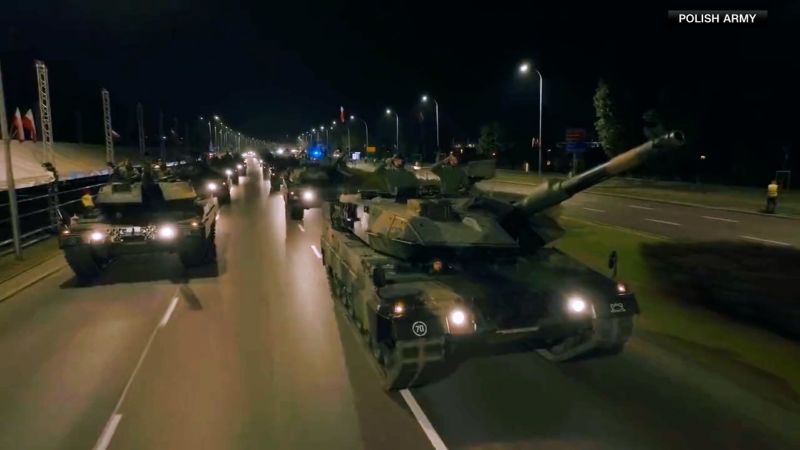Miller, K. J. & Venditto, S. J. C. Multi-step planning in the brain. Curr. Opin. Behav. Sci. 38, 29–39 (2021).
Mattar, M. G. & Lengyel, M. Planning in the brain. Neuron 110, 914–934 (2022).
de Groot, A. D. Het Denken van den Sckaken (Noord-Holland. Uitgev. Maatschappij, 1946).
Charness, N. in Toward a General Theory of Expertise: Prospects and Limits (eds Anders, E. K. & Smith, J.) 39–63 (Cambridge University Press, 1991).
Holding, D. H. Theories of chess skill. Psychol. Res. 54, 10–16 (1992).
Gobet, F. A pattern-recognition theory of search in expert problem solving. Think. Reasoning 3, 291–313 (1997).
Campitelli, G. & Gobet, F. Adaptive expert decision making: Skilled chess players search more and deeper. J. Int. Comput. Games Assoc. 27, 209–216 (2004).
Linhares, A., Freitas, A. E. T., Mendes, A. & Silva, J. S. Entanglement of perception and reasoning in the combinatorial game of chess: differential errors of strategic reconstruction. Cogn. Syst. Res. 13, 72–86 (2012).
Daw, N. D., Gershman, S. J., Seymour, B., Dayan, P. & Dolan, R. J. Model-based influences on humans’ choices and striatal prediction errors. Neuron 69, 1204–1215 (2011).
Huys, Q. J. et al. Bonsai trees in your head: how the Pavlovian system sculpts goal-directed choices by pruning decision trees. PLoS Comput. Biol. 8, e1002410 (2012).
Chase, W. G. & Simon, H. A. Perception in chess. Cogn. Psychol. 4, 55–81 (1973).
Van Harreveld, F., Wagenmakers, E.-J. & Van Der Maas, H. L. The effects of time pressure on chess skill: an investigation into fast and slow processes underlying expert performance. Psychol. Res. 71, 591–597 (2007).
Sheridan, H. & Reingold, E. M. Chess players’ eye movements reveal rapid recognition of complex visual patterns: evidence from a chess-related visual search task. J. Vis. 17, 4 (2017).
Gobet, F. & Simon, H. A. Expert chess memory: revisiting the chunking hypothesis. Memory 6, 225–255 (1998).
Bilalić, M., Langner, R., Erb, M. & Grodd, W. Mechanisms and neural basis of object and pattern recognition: a study with chess experts. J. Exp. Psychol. Gen. 139, 728–742 (2010).
Saariluoma, P. Visuospatial and articulatory interference in chess players’ information intake. Appl. Cogn. Psychol. 6, 77–89 (1992).
Holding, D. H. The Psychology of Chess Skill (Lawrence Erlbaum, 1985).
Holding, D. H. Evaluation factors in human tree search. Am. J. Psychol. 102, 103–108 (1989).
Gobet, F. & Jansen, P. Towards a chess program based on a model of human memory. Adv. Comput. Chess 7, 35–60 (1994).
Holding, D. H. Counting backward during chess move choice. Bull. Psychon. Soc. 27, 421–424 (1989).
Charness, N. in Complex Information Processing 203–228 (Psychology Press, 2013).
Huys, Q. J. et al. Interplay of approximate planning strategies. Proc. Natl Acad. Sci. USA 112, 3098–3103 (2015).
Snider, J., Lee, D., Poizner, H. & Gepshtein, S. Prospective optimization with limited resources. PLoS Comput. Biol. 11, e1004501 (2015).
Kolling, N., Scholl, J., Chekroud, A., Trier, H. A. & Rushworth, M. F. Prospection, perseverance, and insight in sequential behavior. Neuron 99, 1069–1082 (2018).
Pfeiffer, B. E. & Foster, D. J. Hippocampal place-cell sequences depict future paths to remembered goals. Nature 497, 74–79 (2013).
Redish, A. D. Vicarious trial and error. Nat. Rev. Neurosci. 17, 147–159 (2016).
Pezzulo, G., Donnarumma, F., Maisto, D. & Stoianov, I. Planning at decision time and in the background during spatial navigation. Curr. Opin. Behav. Sci. 29, 69–76 (2019).
Miller, K. J., Botvinick, M. M. & Brody, C. D. Dorsal hippocampus contributes to model-based planning. Nat. Neurosci. 20, 1269 (2017).
Groman, S. M., Rich, K. M., Smith, N. J., Lee, D. & Taylor, J. R. Chronic exposure to methamphetamine disrupts reinforcement-based decision making in rats. Neuropsychopharmacology 43, 770–780 (2018).
Akam, T. et al. The anterior cingulate cortex predicts future states to mediate model-based action selection. Neuron 109, 149–163 (2020).
Beck, J. Combinatorial Games: Tic-Tac-Toe Theory Vol. 114 (Cambridge Univ. Press, 2008).
van Opheusden, B. & Ma, W. J. Tasks for aligning human and machine planning. Curr. Opin. Behav. Sci. 29, 127–133 (2019).
Pearl, J. Heuristics: Intelligent Search Strategies for Computer Problem Solving (Addison-Wesley Longman Publishing Co., Inc., 1984).
Bonet, B. & Geffner, H. Planning as heuristic search. Artif. Int. 129, 5–33 (2001).
Dechter, R. & Pearl, J. Generalized best-first search strategies and the optimality of A*. J. ACM 32, 505–536 (1985).
Callaway, F. et al. Rational use of cognitive resources in human planning. Nat. Hum. Behav. 6, 1112–1125 (2022).
Treisman, A. M. & Gelade, G. A feature-integration theory of attention. Cogn. Psychol. 12, 97–136 (1980).
van Opheusden, B., Acerbi, L. & Ma, W. J. Unbiased and efficient log-likelihood estimation with inverse binomial sampling. PLOS Comput. Biol. 16, e1008483 (2020).
Acerbi, L. & Ma, W. J. Practical Bayesian optimization for model fitting with Bayesian adaptive direct search. Proceedings of the 31st International Conference on Neural Information Processing Systems 1834–1844 (2017).
Turing, A. Computing machinery and intelligence. Mind 59, 433–460 (1950).
Elo, A. E. The Rating of Chessplayers, Past and Present (Arco Pub., 1978).
Chabris, C. F. & Hearst, E. S. Visualization, pattern recognition, and forward search: Effects of playing speed and sight of the position on grandmaster chess errors. Cogn. Sci. 27, 637–648 (2003).
Calderwood, R., Klein, G. A. & Crandall, B. W. Time pressure, skill, and move quality in chess. Am. J. Psychol. 101, 481–493 (1988).
Krusche, M. J., Schulz, E., Guez, A. & Speekenbrink, M. Adaptive planning in human search. Preprint at BioRxiv https://doi.org/10.1101/268938 (2018).
Huang, J., Velarde, I., Ma, W. J. & Baldassano, C. Schema-based predictive eye movements support sequential memory encoding. eLife 12, e82599 (2023).
Dubey, R., Agrawal, P., Pathak, D., Griffiths, T. L. & Efros, A. A. Investigating human priors for playing video games. In Proc. Intennational Conference of Machine Learning (ICML) (2018).
Charness, N., Tuffiash, M., Krampe, R., Reingold, E. & Vasyukova, E. The role of deliberate practice in chess expertise. Appl. Cogn. Psychol. 19, 151–165 (2005).
Brown, N. & Sandholm, T. Superhuman AI for multiplayer poker. Science 365, 885–890 (2019).
Meta Fundamental AI Research Diplomacy Team (FAIR) et al.Human-level play in the game of diplomacy by combining language models with strategic reasoning. Science 378, 1067–1074 (2022).
Silver, D. et al. A general reinforcement learning algorithm that masters chess, shogi, and go through self-play. Science 362, 1140–1144 (2018).
Hamrick, J. B. et al. Combining q-learning and search with amortized value estimates. In Proc. International Conference on Learning Representations (ICLR) (2020).
Ma, I., Phaneuf, C., van Opheusden, B., Ma, W. J. & Hartley, C. The component processes of complex planning follow distinct developmental trajectories. Preprint at PsyArXiv https://doi.org/10.31234/osf.io/d62rw (2022).
Padoa-Schioppa, C. & Assad, J. A. Neurons in the orbitofrontal cortex encode economic value. Nature 441, 223–226 (2006).
Cornelissen, F. W., Peters, E. M. & Palmer, J. The eyelink toolbox: eye tracking with MATLAB and the psychophysics toolbox. Behav. Res. Methods Instr. Comput. 34, 613–617 (2002).
Zermelo, E. Die berechnung der turnier-ergebnisse als ein maximumproblem der wahrscheinlichkeitsrechnung. Math. Z. 29, 436–460 (1929).
Hunter, D. R. MM algorithms for generalized Bradley-Terry models. Ann. Stat. 32, 384–406 (2004).
Sutton, R. S. & Barto, A. G. Reinforcement Learning: An Introduction Vol. 1 (MIT Press, 1998).
Sutton, R. S., McAllester, D. A., Singh, S. P. & Mansour, Y. in Advances in Neural Information Processing Systems 1057–1063 (2000).
Dawson, R. Unbiased Tests, Unbiased Estimators, and Randomized Similar Regions. PhD thesis, Harvard Univ. (1953).
de Groot, M. H. Unbiased sequential estimation for binomial populations. Ann. Math. Stat. 30, 80–101 (1959).
Huyer, W. & Neumaier, A. Global optimization by multilevel coordinate search. J. Glob. Optim. 14, 331–355 (1999).







More News
Author Correction: Stepwise activation of a metabotropic glutamate receptor – Nature
Changing rainforest to plantations shifts tropical food webs
Streamlined skull helps foxes take a nosedive